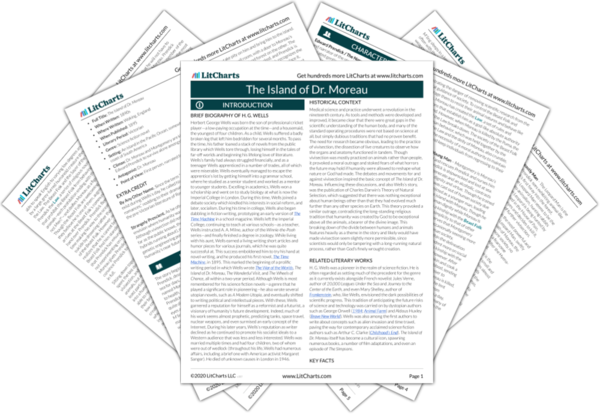Within the story, the whips function as the symbol of human authority over the Beast Folk. Although within the psyche of the Beast Folk Moreau is established as God, other humans still wield control over them in the hierarchy of the island. Montgomery is referred to as the “Other with a whip,” indicating that though he is not Moreau, his possession of the weapon is something to be feared and gives him power. When Moreau goes missing, several Beast Folk rush Montgomery even though he cracks the whip, which is the first time any Beast Folk have ever defied the whip and the first indicator that the Law is breaking down altogether.
It is significant that the whip is a weapon and thus a mark of humanity. None of the Beast Folk use weapons—aside from M’ling, until he begins to regress—preferring their teeth and claws as animals do. The humans, however, having no fearsome teeth or claws to fight with, must almost always travel with weapons or they could not hope to defend themselves, since unarmed human beings are far less powerful than Moreau’s creations. Tellingly, when the Beast Folk first meet Prendick he is not carrying a whip, and thus the Beast Folk do not even realize that he is human, assuming that he too was made by Moreau. This indicates that the authority accorded to humans by the whip is largely artificial, and nods to the similarity of man and animal in general, at least in the eyes of the Beast Folk. Without the presence of the whips, the Beast Folk cannot see what truly differentiates them from human beings.
Whips Quotes in The Island of Dr. Moreau
“Hail,” said they, “to the Other with the whip!”
“There’s a third with a whip now,” said Montgomery, so you’d better mind!”
“Was he not made?” said the Ape Man. “He said—he said he was made.”
[Montgomery] cracked his whip in some trepidation, and forthwith [the Beast Folk] rushed at him. Never before had a Beast Man dared to do that.












